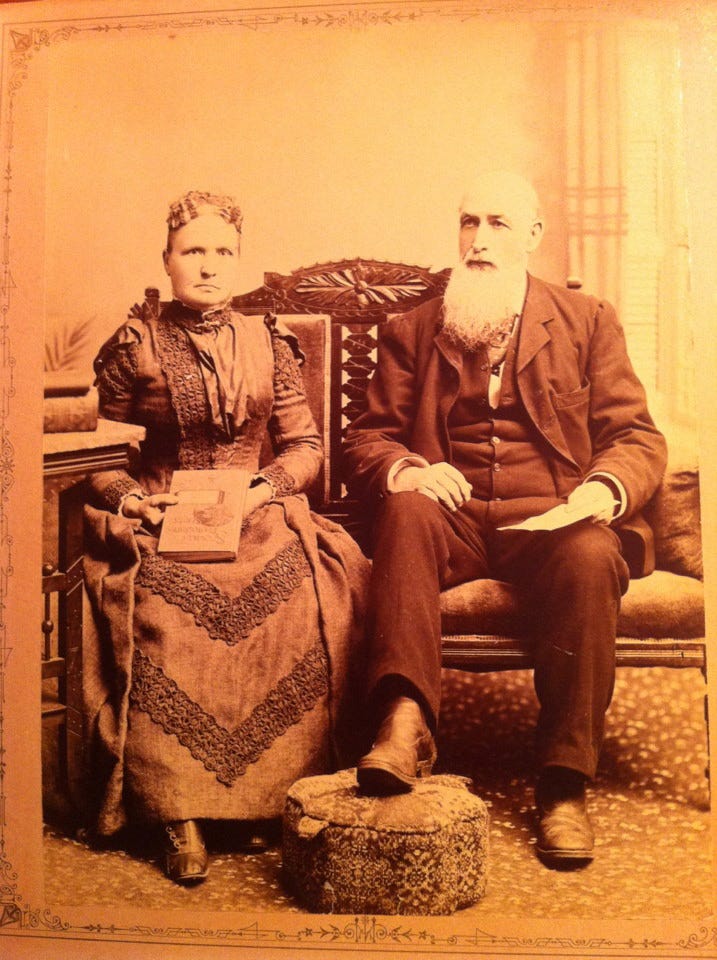Seven Tips to Take Your Ancestry Research to the Next Level
Simple, proven strategies to bring your ancestors back to life.
Thousands of characters came together to make you possible — genealogy brings those stories back to life. On one side of your family tree, maybe your ancestors survived sketchy voyages across the Atlantic Ocean. On the other, they witnessed or fought in revolutions and wars. Maybe your ancestors wrote for a colonial newspaper in the 1700s, built carriages in the 1800s, or drove a Packard in the ‘20s.

What makes genealogy special is going beyond the name in black ink. What did your grandfather and his siblings do for fun during the 1930s? Was your great-great-grandmother imposing or sweet? Did your ancestors sport bushy beards, handlebar mustaches, or top hats?
There are many ways to unearth these details, and I’m excited to share some of them with you! They are simple and easy — anybody can do them in a few minutes. They might bring a new dimension to your family tree you never knew existed.
Sometimes, there are records — pictures, films, documents — stored away that nobody remembers.
Ask your family about pictures and home movies! Invaluable photographs might be sitting in your parents or uncle's attic. In the 1960s and 1970s, affordable, easy-to-use 8mm cameras caught the hearts of thousands of Americans. Maybe there are a few home movies in your grandparents' attic, waiting for you to find them.
Use historical context to reconstruct your ancestors’ lives.
There probably isn’t anybody living today that knew your 4th-great-grandparents. But that doesn’t mean you can’t learn about their experiences through context! Census records and newspapers will reveal what your ancestors did for work, where they did it, what street they lived on, and more. For instance, one of my ancestors cut glass during the 1890s for J.D. Bergen in Meriden, CT. Surviving punch bowls, clocks, and mugs they made are for sale on eBay!

Newspapers reported on EVERYTHING during the 1800s and 1900s, from scandals to casual, local get-togethers. What did they say about your ancestors?
Explore newspaper archives for mention of your family! Ancestry.com has a newspaper database called Newspapers.com which is quickly becoming the go-to spot for newspaper research online. Newspapers will reveal the little details that make your ancestor’s personality. For instance, I found a short article that told me my 3rd-great-grandfather had backyard pigeons in 1894.
Ask questions.
Your parents, grandparents, aunts, and uncles have years of memories waiting to be unlocked. Don’t tire them out with tough inquiries all at once — ask specific questions periodically. I love calling my uncle once a week and asking him just one or two simple questions, like, “Hey, what did you do during the summers when you were a kid?” or “Was your grandmother funny?” Pointed, simple questions might unlock a memory your family member long forgot and could make for a fun conversation!
Pay close attention to everything other than your ancestor’s name on the census.
Whenever you find your ancestor in the census, scan a few houses around them for familiar surnames, even flip through the pages. Family and friends often lived close to each other.
Your ancestors might have done something for work that would surprise you. Check out their occupation.
Take special care to look at every question on census records — they change slightly every decade. For instance, in 1910, they asked: “Is the person a survivor of the Union or Confederate Army or Navy?”
Check out Ancestry, FamilySearch, or MyHeritage to get started with the census!

Never underestimate the power of a Google search!
Especially today, where more and more people are sharing their finds and resources (family bibles, photographs, stories), there’s a chance you might stumble across something ground-breaking on the internet. Once, I found 600 pages worth of handwritten ledgers by my great-great-grandfather for his carriage-making company just by searching “John Lovejoy Maine carriage maker.”
Keep an open mind when you stumble across unexpected or surprising family details.
Sometimes, you might come across a discovery you think couldn't match up with your ancestor. Initially, they might seem far-fetched, but do not discount them. Keep them in your mind — they might end up fitting into the genealogical puzzle! Ask your relatives if they have heard that story. Once, I found a shocking article that I thought couldn't possibly be about my ancestor, but it turned out to be him.
Jack Palmer is a History and Psychology double-major at Duke University. I’ve done genealogy research since I was 10 and love writing about it for family, friends, and anybody else who might enjoy a blast from the past.





